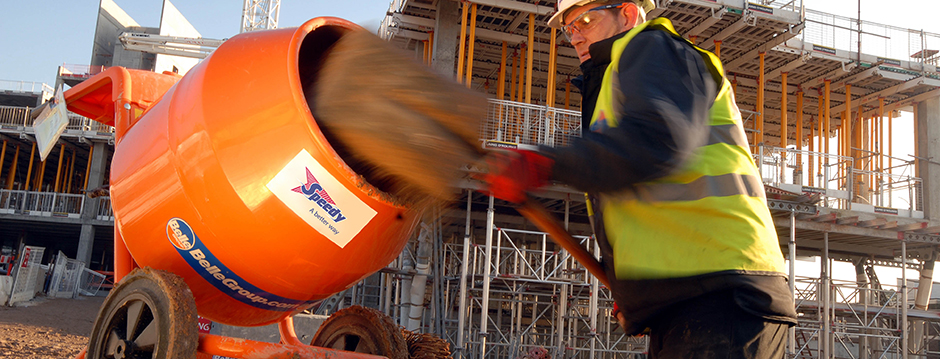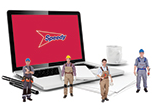
Not all construction firms are large organisations working on big contracts to build office blocks, hotels and commercial buildings.
Other less-sizeable enterprises will use tool hire services and focus on residential projects or a specific area of construction, such as installing insulation, refurbishing residential homes and buildings, or fitting solar panels. Small builders will also regularly use contractors or self-employed builders to get jobs done on time and if any larger-scale jobs crop up.
However, smaller firms still have health and safety regulations they need to follow on site in a bid to reduce the risk of accidents. Although they vary slightly from the rules larger contractors have to abide by, they still need to be adhered to and firms may be penalised if they are caught out.
Health and safety is an extremely important aspect of running a building site and this guide will go through the things smaller businesses have to know, as well as who is responsible for managing the construction site and, ultimately, the wellbeing of the workers.
Why is it important for small construction companies to consider health and safety?
It is vital that a company of all sizes, and in all fields, protects their workers. Health and safety doesn't just apply to construction companies or large corporations.
But a few things may be different for smaller construction companies. Due to potential work on residential homes and buildings, as opposed to huge independent sites miles away from anywhere, there may be increased risk to members of the public. Therefore, strict health and safety measures have to be put in place when considering site security and the risk of members of the public being present on-site (such as in homes).
Jobs may not be standardised, either. While larger construction companies can specialise in large jobs, smaller companies may have to adapt slightly, which could mean a higher risk of hazards in moving towards unknown territories.
When it comes to working on-site, there may be visiting contractors or temporary self-employed staff brought in to help with larger projects or specialised tasks. This means people may be unfamiliar with particular tools, the layout of the site, and the way the site operates. Therefore, additional guidance and monitoring may be required.
All temporary employees need to be checked to ensure they are indeed qualified for the job. When an individual is appointed, check for:
- skills
- knowledge
- experience
- training
This should all be proportionate to the work being carried out, and the scale of the project. It is good to ask for records of continuing professional development, training records, membership of professional bodies, and references from previous construction work.
Also, reputation matters. It is too risky for any company to go into a job without the correct tools and health and safety precautions. You don't want to lose out on future contracts, or have poor word of mouth in the local area if advertising and recommendations is how you get most of your business.
Large companies could also risk further jobs and reputation, but can be more likely to recover. They will also be more likely to invest more money in making sure no issues happen in the first place.
- 2024
- 2023
- December 2023 (13)
- November 2023 (10)
- October 2023 (6)
- September 2023 (10)
- August 2023 (20)
- July 2023 (21)
- June 2023 (17)
- May 2023 (17)
- April 2023 (17)
- March 2023 (14)
- February 2023 (15)
- January 2023 (7)
- 2022
- December 2022 (6)
- November 2022 (12)
- October 2022 (24)
- September 2022 (14)
- August 2022 (12)
- July 2022 (15)
- June 2022 (18)
- May 2022 (14)
- April 2022 (9)
- March 2022 (5)
- February 2022 (5)
- January 2022 (2)
- 2021
- December 2021 (7)
- November 2021 (10)
- October 2021 (1)
- September 2021 (1)
- August 2021 (3)
- July 2021 (3)
- June 2021 (4)
- May 2021 (1)
- April 2021 (1)
- March 2021 (2)
- February 2021 (1)
- January 2021 (1)
- 2020
- 2019
- 2017
- 2016
- 2014
- 2013
- 2012
- 2011


